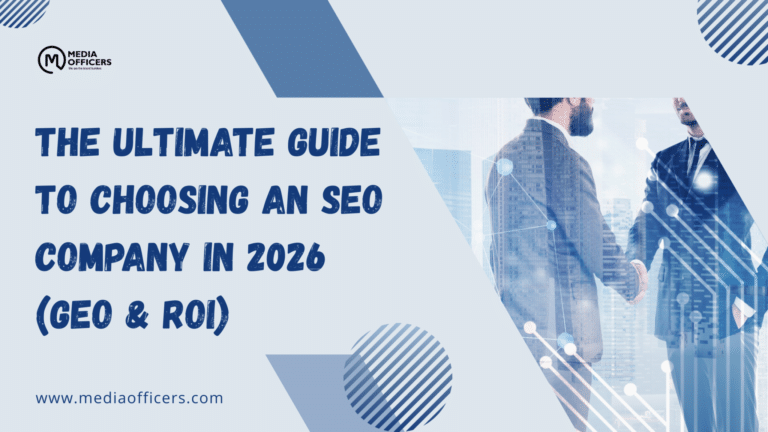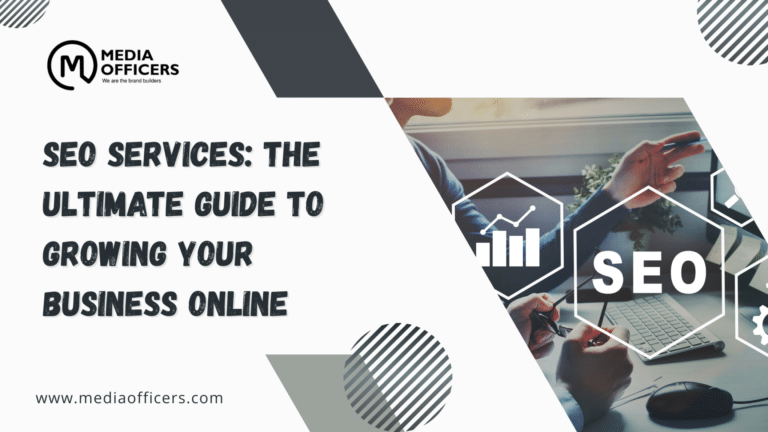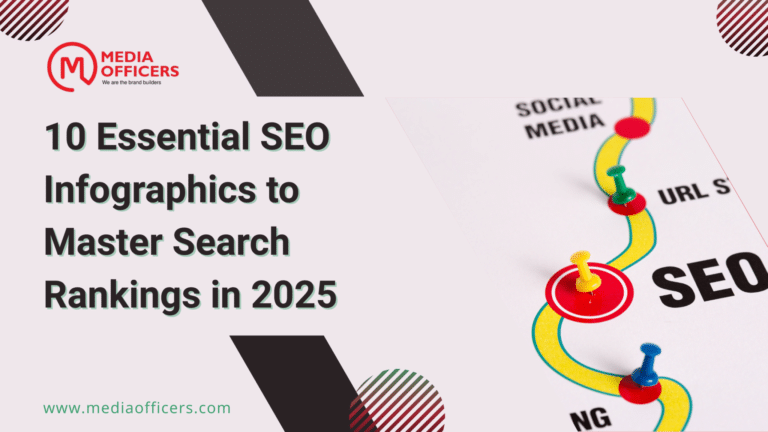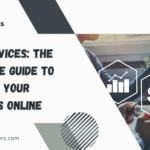Search Engine Optimization (SEO) is the practice of enhancing a website’s visibility on search engines such as Google, Bing, and Yahoo. This process involves optimizing various website elements to improve its ranking in search engine results pages (SERPs). The primary objective of SEO is to increase organic traffic and enhance online presence.
Understanding search engine functionality is crucial for effective SEO. Search engines employ sophisticated algorithms to assess the relevance and authority of web pages in relation to specific search queries. These algorithms consider numerous factors, including keywords, backlinks, and user experience, to determine page rankings.
Consequently, SEO practitioners must optimize website content, structure, and performance to align with these algorithms and improve search result visibility. SEO encompasses two main categories: on-page SEO and off-page SEO. On-page SEO focuses on optimizing individual web pages to enhance their search engine rankings, including content optimization, meta tag improvements, and internal linking strategies.
Off-page SEO involves activities external to the website that boost its authority and relevance, such as link building, social media marketing, and influencer outreach. User experience is a critical component of SEO. Search engines prioritize websites that offer positive user experiences, including fast loading times, mobile responsiveness, and high-quality content.
Therefore, SEO efforts must cater to both search engine algorithms and human users’ needs and preferences. By prioritizing user experience, websites can improve their search result performance and attract more organic traffic.
Key Takeaways
- SEO is the process of optimizing your website to rank higher in search engine results pages.
- Advanced SEO techniques include schema markup, mobile optimization, and voice search optimization.
- Keyword research involves identifying relevant keywords for your website and analyzing their search volume and competition.
- On-page SEO strategies include optimizing meta tags, headings, and content, while off-page strategies involve link building and social media promotion.
- Content creation and optimization are crucial for SEO, including creating high-quality, relevant content and optimizing it with keywords and internal links.
Advanced Techniques for SEO Optimization
Technical SEO: The Foundation of Search Engine Visibility
Technical SEO ensures that search engines can crawl and index a website effectively, leading to improved rankings and visibility.
Another advanced technique is local SEO, which is crucial for businesses targeting a local audience. Local SEO involves optimizing a website for location-based searches, such as “restaurants near me” or “plumbers in [city].” This includes creating local business listings, optimizing Google My Business profiles, and obtaining local citations.
Local SEO: Attracting Nearby Customers
By implementing local SEO strategies, businesses can improve their visibility in local search results and attract nearby customers.
Furthermore, advanced keyword research techniques can enhance an SEO strategy. Instead of targeting broad keywords with high competition, businesses can use long-tail keywords and semantic keywords to capture more specific search queries. This involves understanding user intent and creating content that addresses niche topics within a particular industry.
Advanced Keyword Research: Targeting Niche Topics
By targeting these less competitive keywords, businesses can increase their chances of ranking higher in search results and attracting more qualified traffic. Additionally, advanced link building strategies can significantly impact a website’s authority and relevance. Instead of focusing solely on the quantity of backlinks, businesses can prioritize the quality of backlinks by obtaining links from authoritative and relevant websites.
Advanced Link Building: Building Authority and Relevance
By acquiring high-quality backlinks, businesses can improve their website’s authority and signal to search engines that it is a valuable resource for users. By implementing these advanced techniques for SEO optimization, businesses can elevate their online presence and outperform competitors in search engine rankings.
Keyword Research and Analysis

Keyword research is a critical component of any SEO strategy. It involves identifying the specific words and phrases that users enter into search engines when looking for information, products, or services related to a particular industry or topic. By understanding the keywords that are relevant to their target audience, businesses can create content that aligns with user intent and improves their chances of ranking higher in search results.
One approach to keyword research is using keyword research tools such as Google Keyword Planner, SEMrush, or Ahrefs. These tools provide valuable insights into search volume, competition level, and related keywords for specific queries. By leveraging these tools, businesses can identify high-potential keywords to target in their content creation and optimization efforts.
Another aspect of keyword research is analyzing keyword intent. This involves understanding the underlying motivation behind specific search queries. For example, some keywords may indicate informational intent (e.g., “how to tie a tie”), while others may signal transactional intent (e.g., “buy red ties online”).
By categorizing keywords based on intent, businesses can tailor their content to meet the needs of users at different stages of the buyer’s journey. Furthermore, conducting competitive keyword analysis can provide valuable insights into the keywords that competitors are targeting and ranking for. By analyzing competitor keywords, businesses can identify gaps in their own keyword strategy and uncover new opportunities for optimization.
This can help businesses refine their keyword targeting and gain a competitive edge in search engine rankings. In addition to traditional keyword research, businesses can also leverage long-tail keywords and semantic keywords to capture more specific search queries. Long-tail keywords are longer and more specific phrases that typically have lower competition but higher conversion rates.
Semantic keywords are related terms and phrases that are contextually relevant to a primary keyword. By incorporating long-tail and semantic keywords into their content strategy, businesses can expand their reach and attract more qualified traffic to their website. By conducting thorough keyword research and analysis, businesses can identify valuable opportunities for optimization and create content that resonates with their target audience.
On-Page and Off-Page SEO Strategies
| SEO Strategy | On-Page | Off-Page |
|---|---|---|
| Keyword Optimization | Optimizing meta tags, headings, and content with relevant keywords | Building backlinks with anchor text containing target keywords |
| Content Quality | Creating high-quality, relevant, and engaging content | Earning natural backlinks from authoritative websites |
| Meta Tags | Optimizing title tags, meta descriptions, and URL structures | Encouraging social sharing and engagement on social media platforms |
| Internal Linking | Creating a logical and organized internal linking structure | Guest blogging and contributing content to other websites |
| Site Speed | Optimizing images, reducing server response time, and leveraging browser caching | Improving website authority and trustworthiness through link building |
On-page SEO strategies focus on optimizing individual web pages to improve their search engine rankings. This includes optimizing content, meta tags, internal linking, and site structure. By implementing on-page SEO best practices, businesses can enhance the relevance and authority of their web pages and increase their visibility in search results.
One on-page SEO strategy is creating high-quality, relevant content that aligns with user intent. This involves conducting keyword research to identify target keywords and incorporating them naturally into the content. Additionally, businesses should focus on creating comprehensive and valuable content that addresses the needs and interests of their target audience.
By producing high-quality content, businesses can improve their chances of ranking higher in search results and attracting organic traffic. Another on-page SEO strategy is optimizing meta tags, including title tags and meta descriptions. These tags provide brief summaries of web page content to search engines and users.
By including target keywords in meta tags and crafting compelling descriptions, businesses can improve click-through rates from search results and signal the relevance of their web pages to search engines. Internal linking is another crucial on-page SEO strategy that helps distribute link equity throughout a website and improve its crawlability. By strategically linking between related pages within a website, businesses can enhance the user experience and help search engines understand the structure and hierarchy of their content.
This can lead to improved rankings for important pages and increased visibility in search results. Off-page SEO strategies focus on activities outside of the website to improve its authority and relevance. One off-page SEO strategy is link building, which involves obtaining backlinks from other websites to signal the credibility and trustworthiness of a website.
Businesses can pursue link building through guest blogging, digital PR efforts, influencer partnerships, and other outreach activities. By acquiring high-quality backlinks from authoritative websites, businesses can strengthen their off-page SEO efforts and improve their website’s authority in the eyes of search engines. Social media marketing is another off-page SEO strategy that can enhance a website’s visibility and engagement.
By sharing content on social media platforms and engaging with followers, businesses can increase brand awareness, drive traffic to their website, and signal social proof to search engines. Additionally, social media activity can contribute to the distribution of content and the acquisition of social signals that impact search engine rankings. By implementing both on-page and off-page SEO strategies, businesses can optimize their website for improved visibility in search results and attract more organic traffic.
Content Creation and Optimization
Content creation is at the core of any successful SEO strategy. High-quality, relevant content not only attracts users but also signals to search engines that a website is a valuable resource worth ranking higher in search results. Therefore, businesses must prioritize content creation and optimization as part of their overall SEO efforts.
One aspect of content creation is conducting thorough keyword research to identify target keywords for optimization. By understanding the specific words and phrases that users enter into search engines when looking for information related to a particular industry or topic, businesses can create content that aligns with user intent and improves their chances of ranking higher in search results. Furthermore, businesses should focus on creating comprehensive and valuable content that addresses the needs and interests of their target audience.
This includes producing informative blog posts, engaging articles, compelling product descriptions, and other forms of content that provide value to users. By prioritizing quality over quantity, businesses can establish themselves as authoritative sources within their industry and attract more organic traffic to their website. In addition to creating high-quality content, businesses should also optimize their existing content for improved search engine visibility.
This involves updating outdated content, improving readability, incorporating target keywords naturally, and enhancing multimedia elements such as images and videos. By optimizing existing content, businesses can breathe new life into underperforming web pages and improve their chances of ranking higher in search results. Another aspect of content optimization is ensuring that web pages are structured in a way that enhances user experience and facilitates search engine crawling and indexing.
This includes organizing content into logical sections with clear headings, using descriptive URLs, implementing schema markup for rich snippets, and optimizing meta tags for improved click-through rates from search results. By prioritizing content creation and optimization as part of their strategy, businesses can establish themselves as authoritative sources within their industry and attract more organic traffic to their website.
SEO Tools and Analytics

Google Analytics: Unlocking Website Performance Insights
One essential SEO tool is Google Analytics, which provides detailed data on website traffic, user behavior, conversion rates, and other key metrics. By leveraging Google Analytics, businesses can gain valuable insights into the performance of their website and identify opportunities for optimization.
Google Search Console: Monitoring Website Presence in Search Results
Another important tool is Google Search Console (GSC), which provides data on how a website appears in Google search results. GSC offers information on indexing status, crawl errors, keyword performance, backlink data, mobile usability issues, and more. By using GSC, businesses can monitor their website’s presence in Google search results and address any issues that may impact its visibility.
Keyword Research and Backlink Analysis Tools
Keyword research tools such as SEMrush or Ahrefs are also invaluable for identifying high-potential keywords to target in content creation efforts. These tools provide insights into search volume, competition level, related keywords, and other valuable data that inform keyword targeting strategies. Furthermore, backlink analysis tools like Moz or Majestic help businesses monitor their backlink profile and identify opportunities for acquiring high-quality backlinks from authoritative websites. These tools provide data on domain authority, anchor text distribution, referring domains, and other metrics that inform link building strategies.
Optimizing Websites with Plugins and Extensions
In addition to these tools, there are various plugins and extensions available for optimizing websites on popular CMS platforms such as WordPress or Shopify. These plugins offer features for optimizing meta tags, improving site speed, implementing structured data markup, generating XML sitemaps, and other aspects of on-page SEO. By leveraging these SEO tools and analytics platforms, businesses can gain valuable insights into their website’s performance and inform data-driven optimization strategies for improved visibility in search results.
Implementing SEO for Business Growth
Implementing strategies is crucial for driving business growth in today’s digital landscape. By improving a website’s visibility in search results through organic traffic acquisition, businesses can attract more potential customers and increase brand awareness. One way to implement SEO for business growth is by creating an SEO-friendly website structure that enhances user experience and facilitates search engine crawling and indexing.
This includes organizing content into logical sections with clear headings, using descriptive URLs, implementing schema markup for rich snippets, optimizing meta tags for improved click-through rates from search results. Another approach is creating high-quality content that resonates with the target audience’s needs and interests while incorporating target keywords naturally into the content. By producing informative blog posts engaging articles compelling product descriptions other forms of content that provide value to users businesses can establish themselves as authoritative sources within their industry attract more organic traffic to their website.
Furthermore implementing local SEO strategies is crucial for businesses targeting a local audience Local SEO involves optimizing a website for location-based searches such as “restaurants near me” or “plumbers in [city].” This includes creating local business listings optimizing Google My Business profiles obtaining local citations By implementing local SEO strategies businesses can improve their visibility in local search results attract nearby customers. Additionally leveraging social media marketing as part of an overall off-page SEO strategy can enhance a website’s visibility engagement By sharing content on social media platforms engaging with followers businesses can increase brand awareness drive traffic to their website signal social proof to search engines Additionally social media activity can contribute to the distribution of content acquisition social signals that impact search engine rankings. By implementing these various strategies businesses can drive organic traffic growth increase brand awareness attract potential customers ultimately leading to business growth in today’s competitive digital landscape.
If you are interested in learning more about services, you may want to check out Media Officers’ article on SEO services for florists. This article provides valuable insights into how SEO can benefit businesses in the floral industry and may offer some helpful tips for implementing SEO strategies.
FAQs
What is SEO?
SEO stands for Search Engine Optimization, which is the practice of increasing the quantity and quality of traffic to your website through organic search engine results.
Why is SEO important for businesses?
SEO is important for businesses because it helps them to improve their online visibility, reach their target audience, and drive more organic traffic to their website. This can ultimately lead to increased brand awareness and higher conversion rates.
What does an SEO course in Delhi cover?
An SEO course in Delhi typically covers topics such as keyword research, on-page optimization, off-page optimization, technical SEO, local SEO, and SEO analytics. It may also include practical training and case studies to help students apply their knowledge.
Who can benefit from taking an SEO course in Delhi?
Anyone who wants to learn how to improve their website’s search engine rankings and drive more organic traffic can benefit from taking an course in Delhi. This includes business owners, marketing professionals, web developers, and anyone interested in pursuing a career in digital marketing.
What are the career opportunities for SEO professionals in Delhi?
After completing an SEO course in Delhi, individuals can pursue career opportunities such as SEO specialist, digital marketing manager, content marketing manager, and SEO consultant. There is a growing demand for SEO professionals in Delhi as businesses continue to prioritize their online presence.








